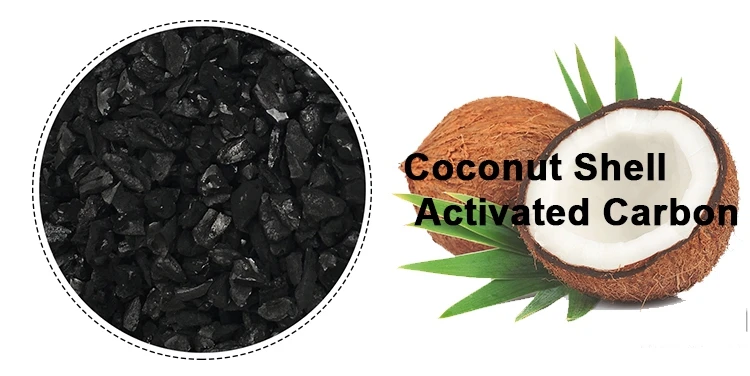Coconut Shell Activated Carbon Finds Wide Applications Across Sectors

Coconut shell activated carbon is made from high-quality coconut shells through specialized and refined processes, appearing as black granular particles. It boasts well-developed pores, excellent adsorption performance, high strength, easy regenerability, and cost-effectiveness with long durability.
In the environmental protection field, coconut shell activated carbon plays a crucial role. It can efficiently adsorb harmful substances such as volatile organic compounds (VOCs), benzene, and formaldehyde from industrial waste gases, significantly improving air quality. Relevant studies have shown that in the waste gas treatment system of a chemical enterprise, the removal rate of harmful components in waste gas reached over 90% after the application of coconut shell activated carbon. Meanwhile, in wastewater treatment, it can effectively adsorb heavy metal ions and organic substances in wastewater, helping wastewater meet discharge standards. For instance, when treating sulfur-containing wastewater, under optimal conditions, its adsorption efficiency for sulfate ions can reach 96.19%.
The food industry also relies heavily on coconut shell activated carbon. During the processing of drinking water, purified water, and beverages, it can remove residual chlorine, odors, and impurities from water, enhancing the taste and purity of water. In the sugar and wine-making industries, it is used for decolorization and deodorization to improve product quality. For example, in sucrose production, it can adsorb pigments and impurities, resulting in the production of high-quality white granulated sugar.
In the pharmaceutical field, coconut shell activated carbon also plays an important role. It can be used for the decolorization and deodorization of pharmaceuticals, and can also act as an antidote to adsorb toxic components for the treatment of acute poisoning. Studies have shown that coconut shell activated carbon has a good loading capacity for gatifloxacin, a quinolone drug, and can be used as a drug sustained-release carrier.
Additionally, in the oil refining industry, coconut shell activated carbon can serve as a carrier for mercaptan removal catalysts; in the air purification field, it can effectively remove harmful gases and odors from indoor air, and is widely used in homes, offices, and other places.
With the continuous advancement of technology, the application prospects of coconut shell activated carbon will be even broader. It is expected to play a greater role in more fields and contribute to the development of various industries and environmental protection.
